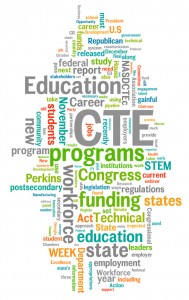 Industry-related research is leading the news this month with new reports from the manufacturing and technology sectors.
Industry-related research is leading the news this month with new reports from the manufacturing and technology sectors.
First up, new data from the National Federation of Independent Business shows that while 98 percent of small business owners say they are optimistic overall, but finding qualified workers remains a problem. In fact, 29 percent reported difficulty in finding and hiring skilled workers – the highest since April 2006 – and of that number, 89 percent said they are seeing few to no applicants.
However, despite this struggle to attract skilled workers, only 20 percent reported raising wages over the past three months and 14 percent plan to raise them in the coming months.
Manufacturing Industry
The Manufacturing Institute, in partnership with Deloitte, released two parallel studies that explore at the manufacturing skills gap and public perceptions of the industry.
In the skills gap study, researchers predict that the United States will need to add nearly 3.5 million manufacturing jobs over the next 10 years, but roughly 2 million of those jobs will go unfilled due to a shortage in skilled labor.
The second survey is part of The Manufacturing Institute’s Public Perceptions Index, which first started in 2009. The 2015 update found that the U.S. public greatly supports the manufacturing industry and would choose a manufacturing plant be built in their region over other employers. However, the same public said they were “unwilling to encourage their children to pursue careers in manufacturing.â€
Also, from the Brookings Institution, a new report looks at the German manufacturing industry for shareable lessons and strategies to aid the U.S. manufacturing industry.
Technology Industry
IBM released a new study on Millennials (those aged 21-34) and how they and others view their effect in the workplace. The survey looked at the preferences and behavioral patterns of Millennials, Gen X (aged 35-49) and Baby Boomers (aged 50-60), and found that Millennials “want the same things their older colleagues do. While there are some distinctions among the generations, Millennials’ attitudes are not poles apart from other employees’.â€
The findings are categorized around five common myths about Millennials and three “uncomfortable truthsâ€.
Andrea Zimmermann, State Policy Associate








